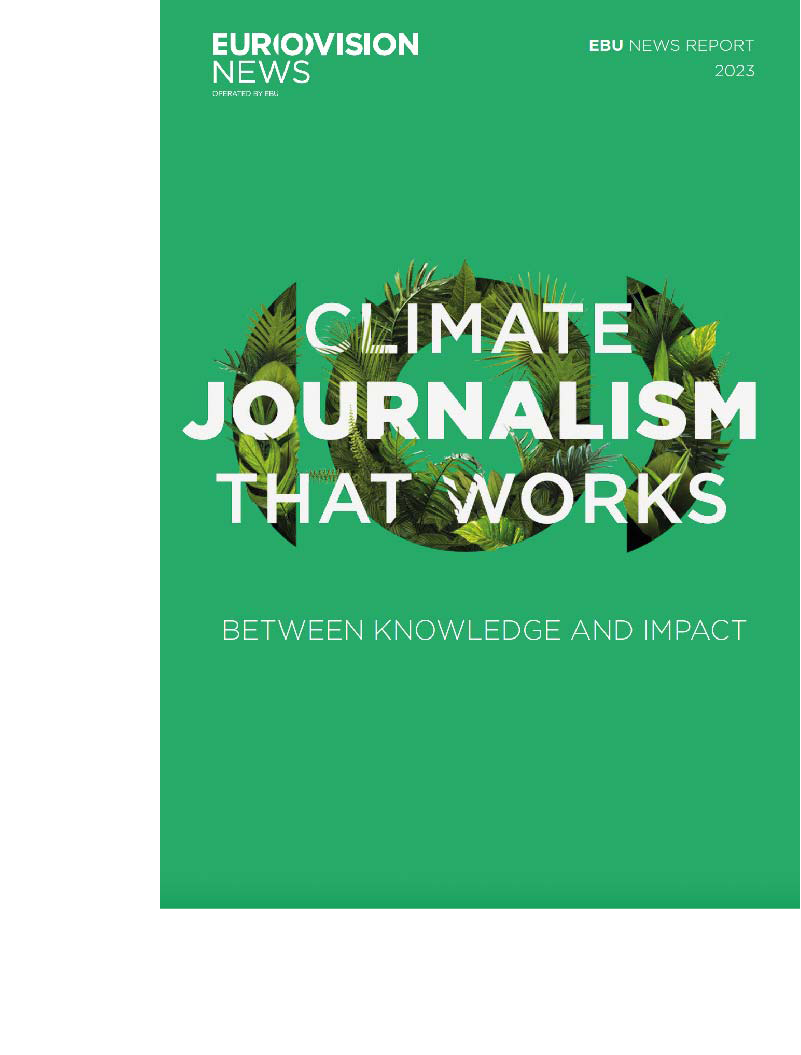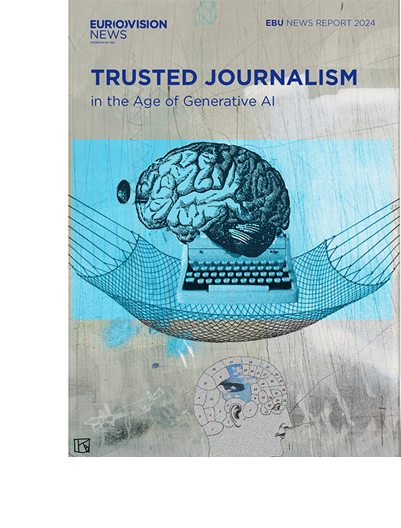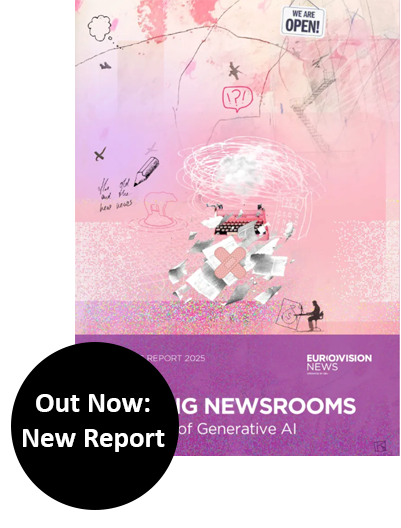When US Supreme Court Justice Ruth Bader Ginsburg succumbed to cancer recently, the headline race was on once again. Instead of pausing for a moment to honor a great personality for her leadership and stamina in the quest for justice, most of the news media didn’t miss a beat. Who would President Donald Trump nominate as her successor, and how would that reshape American society? Reporting instantly took second place to speculation and opinion, drowning out the announcement of the 87-year-old’s death in a sea of noise.
The predominant frame for interpreting today’s world is winning and losing, and the media has bought right into it. Being faster, smarter, delivering yet another interpretation, speculation and judgement – a certain breathlessness has always been inherent in journalism. But in pre-digital times, news media only competed against each other. The difference now is that they are up against everything an average smartphone holds. The battle for attention shapes their very existence. And readers are responding by leaving in droves. According to the Reuters Institute’s Digital News Report, one in three people now regularly avoids the news. A rising share of audiences find journalism too overwhelming, too negative, too opinionated with too little relevance for their daily lives. And they believe it can’t always be trusted.
This is bad news – for democracy. In a world of noise, propaganda and misinformation, leadership by independent media that provide the facts is needed more than ever. Studies show that voting turnout is higher, more people run for office and public money is spent more responsibly where local news media keep citizens informed and hold institutions to account. But business models are broken. Platform monopolies have gobbled up advertising money and optimize for attention; too often the media has followed suit.
Now there is no way that media companies can outsmart Google, Facebook and the like. News media have to go where their audiences are. But when opinion is everywhere, quality information becomes a critically important currency. Covid-19 has demonstrated that people crave trustworthy journalism. According to the Edelman Trust Barometer, in the first weeks of the pandemic more people relied on major news organizations than on government agencies or even their own friends and family for information. This is a huge responsibility, but what to do with it?
First of all, listening to audiences is vital. Many journalists still spend more energy on beating the competition than attempting to find out what their audiences need. Among these are more explanation, more solutions, a clear distinction between facts and opinion, less noise, clickbait and talking down to people. Instead of indulging in thumbs-up, thumbs-down journalism, more constructive reporting is needed.
The news media cannot go it alone, though. The political sphere needs to secure press freedom; supporting the economic viability of the industry is part of it. And the platform companies that shape today’s communication infrastructure have to take responsibility too. Their algorithms have to optimize for quality content.
Yet blaming Silicon Valley for everything that is going wrong has been the easy way out for too long. A recent study by the Berkman Klein Center for Internet and Society confirmed what other research has already pointed out: the mass media are much more responsible for spreading misinformation – for the most part thought up by political leaders – than social media is. This is bad news and good news at the same time. Bad news, because journalism has not lived up to its potential. Good news, because the media still has plenty of agenda-setting power. Instead of blaming platform companies or foreign meddling for spreading “fake news”, the news media and its leaders should confidently reassert their historic mission to lead through a world of information confusion: that is, to deliver the facts, be transparent about their quest and stimulate serious public conversation. The health of our societies depends on it.




OXFORD – Depending on where you get your news, your view of how the impeachment inquiry into US President Donald Trump is unfolding may be very different from that of your friends, relatives, or neighbors. You may also think that any version of the story that conflicts with yours is simply untrue. This lack of consensus on basic facts – largely a byproduct of social media – carries serious risks, and not nearly enough is being done to address it.
In recent years, the need to improve “media literacy” has become a favorite exhortation of those seeking to combat misinformation in the digital age, especially those who would prefer to do so without tightening regulation of tech giants like Facebook and Google. If people had enough media savvy, the logic goes, they would be able to separate the wheat from the chaff, and quality journalism would prevail.
There is some truth to this. Just as it is dangerous to drive in a place where you don’t know the traffic laws, navigating the new digital-media environment safely – avoiding not only “fake news,” but also threats like online harassment, nonconsensual (“revenge”) porn, and hate speech – requires knowledge and awareness. Robust efforts to improve media literacy globally are thus crucial. Free, credible, and independent news media are a pillar of any functioning democracy, essential to enable voters to make informed decisions and to hold elected leaders accountable. Given this, media literacy must be pursued within a broader campaign to improve democratic literacy.
Since its invention in ancient Greece more than 2,500 years ago, democracy has depended on rules and institutions that strike a balance between participation and power. If the point was simply to enable everyone to speak up, platforms like Facebook and Twitter would be the pinnacle of democracy, and popular movements like the 2011 Arab Spring would naturally produce functioning governments.
Instead, the objective is to create a system of governance in which elected leaders bring to bear their knowledge and experience, in order to advance the interests of the people. The rule of law and the separation of powers, guaranteed by a system of checks and balances, are vital to the functioning of such a system. In short, mobilization means little without institutionalization.
And yet, today, public institutions are suffering from the same lack of trust as news media. To some extent, this is warranted: many governments have failed to meet their citizens’ needs, and corruption is rampant. This has fueled rising skepticism toward democratic institutions, with people often preferring ostensibly more egalitarian online platforms, where everyone’s voice can be heard.
The problem is that such platforms lack the checks and balances that informed decision-making demands. And, contrary to the early expectations of some Internet pioneers, those checks and balances will not emerge organically. On the contrary, tech companies’ algorithm-driven business models all but preclude them, because they amplify voices according to clicks and likes, not value or veracity.
Populist politicians have taken advantage of the lack of checks and balances to obtain power, which they often use to please their supporters, ignoring the needs of opponents or minority groups. This type of majority rule looks a lot like mob rule, with populist leaders trying to overrule legislatures and courts to fulfill the desires – often shaped by lies and propaganda – of their constituents. British Prime Minister Boris Johnson’s recent attempt to suspend Parliament, in order minimize its ability to prevent a no-deal Brexit, is a case in point.
In a democracy, all people must be able to trust their leaders to uphold their rights and protect their basic interests, regardless of whom they voted for. They should be able to go about their daily lives, confident that public officials will dedicate their time and energy to making informed decisions – and that those who don’t will be checked and balanced by the rest. Credible independent media support this process.
In Johnson’s case, the judiciary fulfilled its duty to check the executive. But with every assault on democratic institutions, accountability is weakened, people become more disillusioned, and the legitimacy of the system declines. Over time, this reduces the incentive for talented people to work in fields like journalism and politics, eroding their effectiveness and legitimacy further.
Breaking this vicious circle requires the rapid expansion of media and democratic literacy, including how the system works and who owns and shapes it. And yet, as a forthcoming study by the Council of Europe’s Expert Committee on Quality Journalism in the Digital Age (on which I served) shows, most existing media-literacy programs are limited to teaching schoolchildren how to use digital platforms and understand news content. Very few target older people (who are most in need), explain who controls media and digital infrastructure, or teach the mechanisms of algorithmic choice.
Democracies all over the world are enduring a stress test. If they are to pass, their institutional underpinnings must be reinforced. That requires, first and foremost, an understanding of what those underpinnings are, why they matter, and who is trying to dismantle them.
This commentary was published by Project Syndicate on November 28, 2019